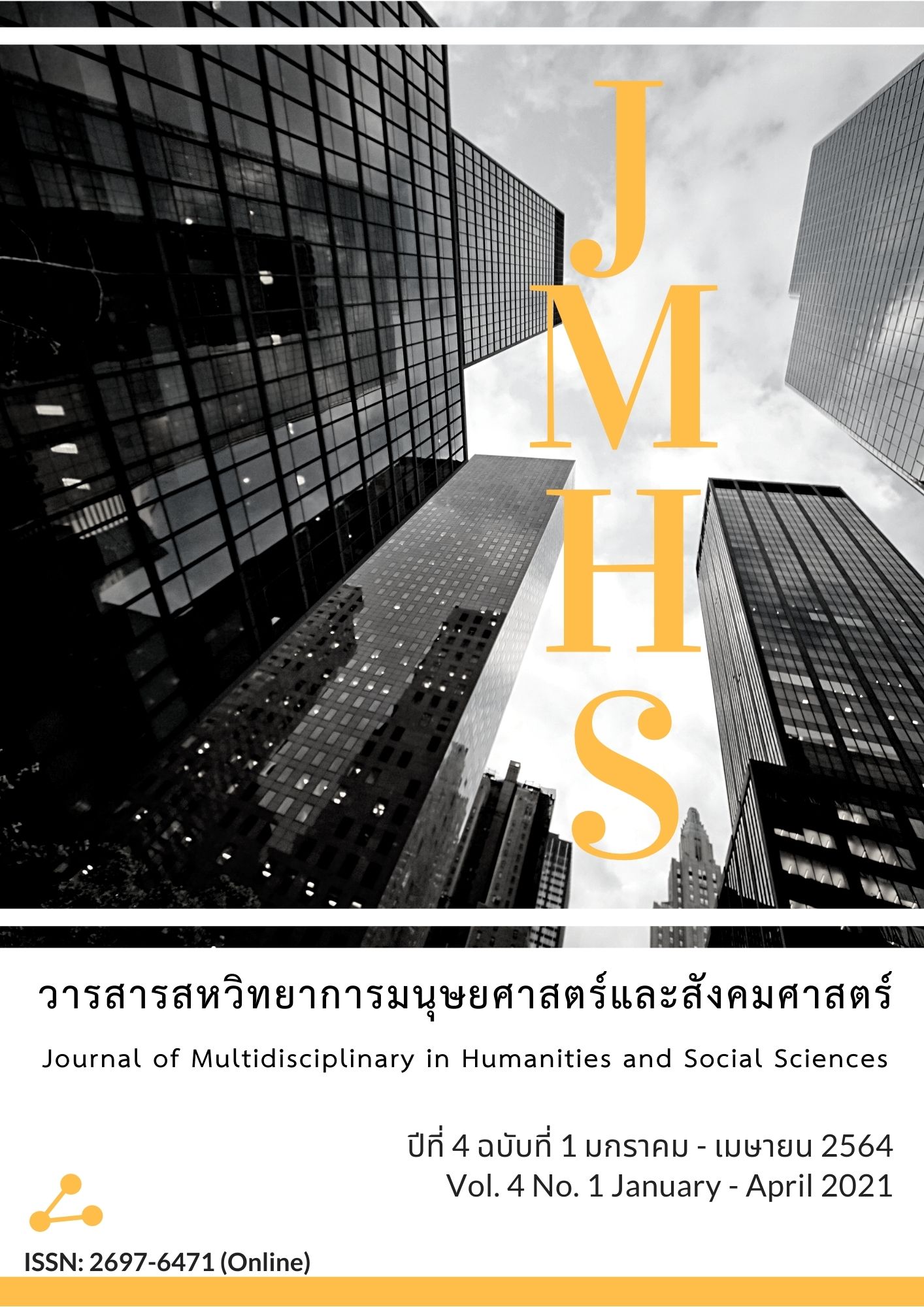An Analysis of the Economic Solutions as in the Kutadanta Sutta: A Case Study of Chim Shop Chai Project
Main Article Content
Abstract
This Article aimed to analyze the economic solutions of the Chim Shop Chai Project in accordance with the Kutadanta Sutta’s principles. This study was a qualitative as documentary research. Data were collected via Thai Tipitaka scriptures, books, documents, academic papers, and various researchers. The findings showed that 1) solving the economic problems based on the Kutadanta Sutta principles was to solve macroeconomic problems. The way to do this was to provide funding to 3 groups of people who are diligent in their careers, namely farmers, merchants, and government officers, 2) the Chim Shop Chai Project aimed to stimulate the economy through domestic tourism promotion, and 3) the economic solution analysis of the Chim Shop Chai Project in accordance with the Kutadanta Sutta’s principles showed that the Chim Shop Chai Project has the same principles as the Kutadanta Sutta in 2 cases: (a) the government wanted to alleviate economic trouble for their people by giving money to the people, and (b) the government wanted economic circulation according to the principles of macroeconomics resulting in increased purchasing power in the country. For the differences, it was found that the government did not select participants into the program according to the occupational groups but allowing all professions to participate in the program freely. Not only participants who are low income, but the high-income people can also join. The government therefore did not promote production factors for farmers in any way. When this happens, it was still not to encourage those who were diligent in their careers as exemplified in. Only merchants who were registered for this project will benefit directly from this project. Moreover, this project did not result in government officers for working more efficiently in any way. Besides, it has not yet supported the people to increase their 10 Courses of Meritorious actions. Because the money given from this project can be misused to buy liquor and cigarettes, so it does not reduce the problem of bandits.
Article Details
Views and opinions appearing in the Journal it is the responsibility of the author of the article, and does not constitute the view and responsibility of the editorial team.
References
ก่องเกียรติ รักษ์ธรรม. (2563). การวิเคราะห์องค์ประกอบตัวบ่งชี้การบริหารแบบมีส่วนร่วมตามแนวคิดของบวร (บ้าน วัด โรงเรียน) ที่ส่งผลต่อประสิทธิภาพการดำเนินงานของโรงเรียนสังกัดสำนักงานเขตพื้นที่การศึกษาประถมศึกษา. วารสารศิลปการจัดการ, 4(2), 458-471.
ทรงธรรม ปิ่นโต และคณะ. (2555). เศรษฐศาสตร์...เล่มเดียวอยู่. กรุงเทพฯ: พลัสเพรส.
นริสา พิชัยวรุตมะ, ประจญ กิ่งมิ่งแฮ และไพศาล แน่นอุดร. (2562). ยุทธศาสตร์การขับเคลื่อนกองทุนสวัสดิการชุมชนตามหลักปรัชญาของเศรษฐกิจพอเพียง จังหวัดอุดรธานี. วารสารมนุษยศาสตร์และสังคมศาสตร์ มหาวิทยาลัยมหาสารคาม, 38(1), 35-44.
มยุรี วรรณสกุลเจริญ และชาญณรงค์ รัตนพนากุล. (2563). ประสิทธิผลขององค์การ. วารสารศิลปการจัดการ, 4(1), 193-204.
มหาจุฬาลงกรณราชวิทยาลัย. (2539). พระไตรปิฎกภาษาไทย ฉบับมหาจุฬาลงกรณราชวิทยาลัย. กรุงเทพฯ: โรงพิมพ์มหาจุฬาลงกรณราชวิทยาลัย.
รัฐบาลไทย. (2562). มติคณะรัฐมนตรี 20 สิงหาคม 2562. สืบค้นเมื่อ 5 ธ.ค. 2562, จาก https://www.thaigov.go.th/news/ contents/details/22383
ศันสนีย์ ชุมพลบัญชร. (2559). กูฏทันตสูตรกับการจัดการเศรษฐศาสตร์มหภาค. วารสารธรรมธารา, 2(2), 110-165.
สมเด็จพระพุทธโฆสาจารย์ ป.อ.ปยุตโต. (2561ก). พจนานุกรมพุทธศาสน์ ฉบับประมวลศัพท์. (พิมพ์ครั้งที่ 31). กรุงเทพฯ: สหธรรมิก.
สมเด็จพระพุทธโฆสาจารย์ ป.อ.ปยุตโต. (2561ข). พจนานุกรมพุทธศาสตร์ ฉบับประมวลธรรม. (พิมพ์ครั้งที่ 41). กรุงเทพฯ: ผลิธัมม์.
สรัญญา แสงอัมพร. (2561). การใช้หลักทิฏฐธัมมิกัตถะเพื่อฟื้นฟูเศรษฐกิจชุมชน. วารสารมหาจุฬานาครทรรศน์, 5(2), 413-433.
สุวรรณี ฮ้อแสงชัย, พระปราโมทย์ วาทโกวิโท และพระมหาวีระศักดิ์ อภินนฺทเวที. (2563). มุมมองการศึกษาเชิงปรัชญา การยอมรับการเปลี่ยนแปลงเชิงพุทธสันติวิธี. วารสารศิลปการจัดการ, 4(1), 180-192.


